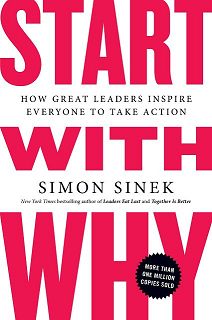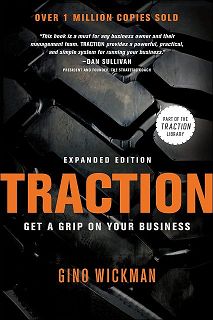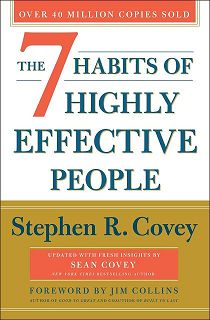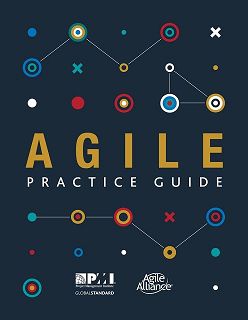In a fast-paced business world, entrepreneurs and business owners need guidance and support to navigate challenges and achieve growth.
As a business development coach, you play a pivotal role in shaping their success. Are you ready to step up and become a successful business development coach in 2023?
This comprehensive guide will walk you through the essential aspects of the coaching journey, from understanding your role and client needs to marketing strategies and staying updated. Get ready to unlock your potential and make a significant impact on the businesses you serve!
Key Takeaways
- As a business development coach, you provide guidance and support to help clients achieve their goals.
- Establish yourself as an expert in the field with unique value propositions and qualifications/certifications.
- Leverage online presence, build professional networks & stay informed for successful coaching in 2023!
The Role of a Business Development Coach

As a business development coach, you serve as a trusted partner for business owners, helping them map out their path to success and growth. Your primary responsibilities include:
- setting goals
- prioritizing strategies and processes
- providing accountability
Whether you’re working with small business owners or CEOs of large organizations, your expertise can be a game-changer in their journey towards achieving their business objectives.
Business development coaching goes beyond merely offering advice. You become a valuable resource for your clients by helping them gain access to networks, referrals, recommendations, and improving their online marketing skills. While self-awareness is crucial, trusting the process and putting in the hard work is essential for business growth.
Your role as a development coach is to guide and support your clients, ensuring they stay on track and achieve their short-term and long-term goals.
Setting Goals and Prioritizing Strategies
As a business development coach, one of your key responsibilities is to help your clients set achievable goals and prioritize strategies. By understanding their needs, you can develop a tailored business plan, that aligns with their business objectives.
Networking plays a significant role in the long-term success of a business, and leveraging the power of referrals and recommendations can be incredibly beneficial for your clients.
Improving your clients’ online marketing skills is also a crucial aspect of your coaching role. By providing them with helpful tools and resources, you can ensure they manage their time effectively and develop a strong online presence.
Adapting to new business realities and staying ahead of the curve is critical for both you and your clients to thrive in a competitive business landscape.
Related: Business Strategy Coaching – Complete Guide
Creating Accountability
Creating accountability is an integral part of your role as a business development coach. To ensure everyone is held accountable, it’s essential to clearly define what they are responsible for, establish clear expectations and goals, and provide feedback on a regular basis.
Building a culture of accountability within your clients’ organizations is the foundation for their progress and success. By providing support and guidance, you can help them stay on track and achieve their objectives.
Needed Skills
To become a successful business coach, developing the following skills is essential.
- Active Listening
- Empathy
- Clear and Communication
- Accountability
- Organizational Skills
- Business Experience
Ideally, you had the chance to collect some business experience before your career as a business development coach.
This makes any of your advice more authentic and real.
Identifying & Getting Your Ideal Clients

Knowing who your ideal clients are is the key to your success as a business development coach. To identify your ideal clients, analyze:
- your current and past successful clients,
- their characteristics,
- values,
- behaviors,
- problems, and
- desires.
You can also create an ideal client avatar, considering their current habits and goals.
Having a specific niche as a business development coach gives you access to a vast market and allows you to tailor your services to address the unique needs of your target audience.
Connecting with Your Target Audience
Building a solid network and engaging in relevant conversations are essential strategies for connecting with your target audience. You can achieve this by leveraging influencers, speaking directly to your target customer, and creating useful and relevant content.
The clarity in your message and studying your social media analytics can also help you refine your approach and reach your target customers more effectively.
By focusing on the needs and interests of your target audience, you can craft offers and marketing strategies that resonate with them. This not only helps you expand your client base but also fosters trust and credibility in your brand, which is crucial in driving decision-making among potential clients.
Related:
Secret Tactics How To Get Coaching Clients
Expert Strategies How To Get Clients As A Life Coach
Comparing Business Development Coaching with Other Coaching Niches

unsplash.com alvaro reyes
Business development coaching is distinct from other coaching niches like marketing, sales, and executive coaching.
While a business coach helps you align your business with your personal objectives, a business development coach focuses on building your brand and driving long-term ambitions.
Understanding this distinction enables you to hone your skills and expertise in the specific domain of business development, setting you apart from other coaches and providing unique value to your clients.
Unique Value Proposition
To stand out as a business development coach, it’s essential to create a unique value proposition that emphasizes the exclusive features and advantages your coaching model and services offer.
This involves understanding the needs and desires of your target customers and showcasing how your coaching services resolve specific issues or satisfy certain requirements.
By conducting thorough research into your customers and competitors, you can gain a better understanding of the market and spot potential opportunities for growth.
Having a unique value proposition not only helps you attract more clients but also establishes you as an expert in your field. This, in turn, fosters trust and credibility in your coaching services, making it easier for potential clients to choose you over other coaches in the market.
Essential Skills and Qualities of a Business Development Coach

To be a successful business development coach, you must possess certain essential skills and qualities, such as computer software skills, interpersonal skills, and organizational skills.
Listening attentively, providing accountability, and creating structured sessions with clear strategies are also crucial aspects of your coaching practice.
These skills enable you to understand your client’s needs effectively, develop tailored plans, and make effective strategies to ensure they stay on track towards achieving their goals.
Apart from these core leadership skills, having a strong foundation in communication, trust, and feedback is vital for building a successful coaching relationship with your clients.
Striking the right balance between praise and constructive criticism is also an important aspect of your coaching practice, as it helps your clients improve and grow continuously.
Related: What Is Leadership Development Coaching?
Developing Your Coaching Style
Developing your coaching style involves reflecting on your strengths, weaknesses, values, and beliefs, as well as understanding your client’s needs and preferences.
Your coaching style should incorporate effective communication, trust-building, and feedback mechanisms that foster a strong coaching relationship with your clients.
Finding the right balance between challenge and support in your coaching style is key to ensuring your clients’ growth and progress.
By offering the right mix of encouragement and constructive criticism, you can help them overcome obstacles, build resilience, and achieve their business objectives.
Remember, a successful coaching relationship is built on mutual respect, understanding, and a genuine desire to help your clients thrive.
Obtaining Relevant Qualifications and Certifications

Although no specific degree is required to become a business development coach, obtaining relevant qualifications and certifications can significantly enhance your credibility and success in the field.
It’s recommended to pursue a coaching certification from reputable organizations such as the International Coaching Federation (ICF) or the Worldwide Association of Business Coaches (WABC).
My comparison article of the best executive coaching certification program should give you a comprehensive overview.
These certifications, along with other specialized business coaching programs, provide you with the necessary training to excel in your coaching practice and set you apart from the competition.
Best Books For Business Development Coaches
The following books give you an edge to help your clients with business development:

Start with Why: How Great Leaders Inspire Everyone to Take Action (Simon Sinek)

Traction: Get A Grip On Your Business (Gino Wickman)

The 7 Habits of Highly Effective People (Stephen R. Covey)

Agile Practice Guide (Project Management Institute)
Building Your Professional Network
Building a strong professional network is crucial for gaining credibility, finding new clients, and staying updated in the coaching industry.
To plan and commit to networking opportunities, it’s essential to
- set goals and objectives,
- research potential networking events, and
- develop a plan of action.
- Attending industry events and conferences,
- connecting with people on LinkedIn, and
- joining professional organizations
are great ways to meet new people, exchange cards, and expand your network.
Focusing on the quality of your connections and fostering genuine, mutually beneficial relationships can help you build a successful and authentic professional network.
Marketing Strategies for Business Development Coaches

In order to attract clients and grow your coaching practice, adopting effective marketing strategies is essential. Some of the top marketing strategies for business development coaches include:
- leveraging your online presence,
- networking,
- referrals, and
- thought leadership content.
By implementing these strategies, you can showcase your expertise, connect with your target audience, and build trust in your company and brand.
Knowing who your ideal clients are and what they’re looking for is crucial for crafting targeted offers and marketing strategies that resonate with them.
Consistency and authenticity in your marketing efforts are vital for making an impact in a crowded marketplace and driving long-term success in your coaching practice.
Leveraging Online Presence

Utilizing social media platforms and creating an engaging website are two key strategies for boosting your online presence and reaching more potential clients.
By crafting helpful and relevant content, optimizing your website for search engine optimization (SEO), and engaging with potential customers on social media, you can effectively showcase your coaching services and connect with your target audience.
Guest blogging, email marketing, and offering free coaching sessions, are additional strategies to increase your online presence and attract new clients.
By consistently producing valuable content and engaging with your target customers, you can establish yourself as an expert in the field and build trust in your coaching services.
Staying Updated and Improving Your Coaching Skills

In a constantly evolving business landscape, staying updated and continually honing your coaching skills is essential for success as a business development coach.
As your client’s needs and challenges evolve, so should your coaching approach and techniques. By staying informed about the latest trends and best practices in the industry, you can ensure that you’re always equipped to guide your clients towards their goals.
Various resources, such as books, podcasts, videos, and research reports, can help you stay in the know about the latest business development coaching trends.
By dedicating time to learning and personal development, you can continuously improve your coaching skills and provide the best possible support to your clients.
Recommended Resources
To stay updated and knowledgeable in the field of business development coaching, leaders should consider exploring resources offered by professional organizations such as:
- Worldwide Association of Business Coaches (WABC)
- International Coach Federation (ICF)
- International Organization for Business Coaching (IOBC)
These organizations provide valuable resources, support, and networking opportunities for business development coaches.
By investing time in learning and personal growth, you can ensure that you remain at the forefront of the industry and continue to deliver exceptional coaching services to your clients.
Summary
In conclusion, becoming a successful business development coach in 2024 requires a combination of understanding your role, identifying your ideal clients, and developing your coaching style.
Obtaining relevant qualifications and certifications, building a solid professional network, and implementing effective marketing strategies are crucial for success. Staying updated and continuously honing your coaching skills is essential for adapting to the ever-evolving business landscape.
By following the guidance provided in this comprehensive guide, you can unlock your potential as a business development coach and make a significant impact on the businesses you serve. Now’s the time to embark on this rewarding journey and transform lives one business at a time!
Frequently Asked Questions
What are the benefits of business development coaching?
Business development coaching provides a variety of benefits, including:
- improved performance,
- greater work satisfaction,
- enhanced communication skills, and
- the development of more effective strategic plans.
It also empowers employees to take charge of their own development in a self-directed way.
With business development strategy and coaching, organizations can achieve measurable gains in productivity and success.
Is a business coach the same as a business consultant?
No, a business coach and a business consultant are not the same. A business coach works to help people develop their skills, confidence, and potential while a consultant provides knowledge and expertise on specific topics to give you guidance with business operations.
A coach focuses on helping individuals learn how to make effective decisions while a consultant one on one coaching can provide an objective opinion to help take your business to the next level.
How much is Tony Robbins’ business coaching?
Tony Robbins’ business coaching fees vary depending on the length of the program. The average rate seems to range from around $5,000-$7,200 for 6 months and up to $10,000 – $15,000 for 12 months.
No matter what package you choose, it’s sure to be an investment in yourself that will pay off in the long run.
Is it worth paying for a business coach?
The decision to hire a business coach depends on your goals and ambitions. It is a great way to get focused, break through barriers, and gain new skills that can help you accelerate the success of your own career or business.
If you are serious about growing your business and achieving your personal goals, paying for a business coach can be worth every penny.
Related:
How Much Does A Business Coach Cost?
